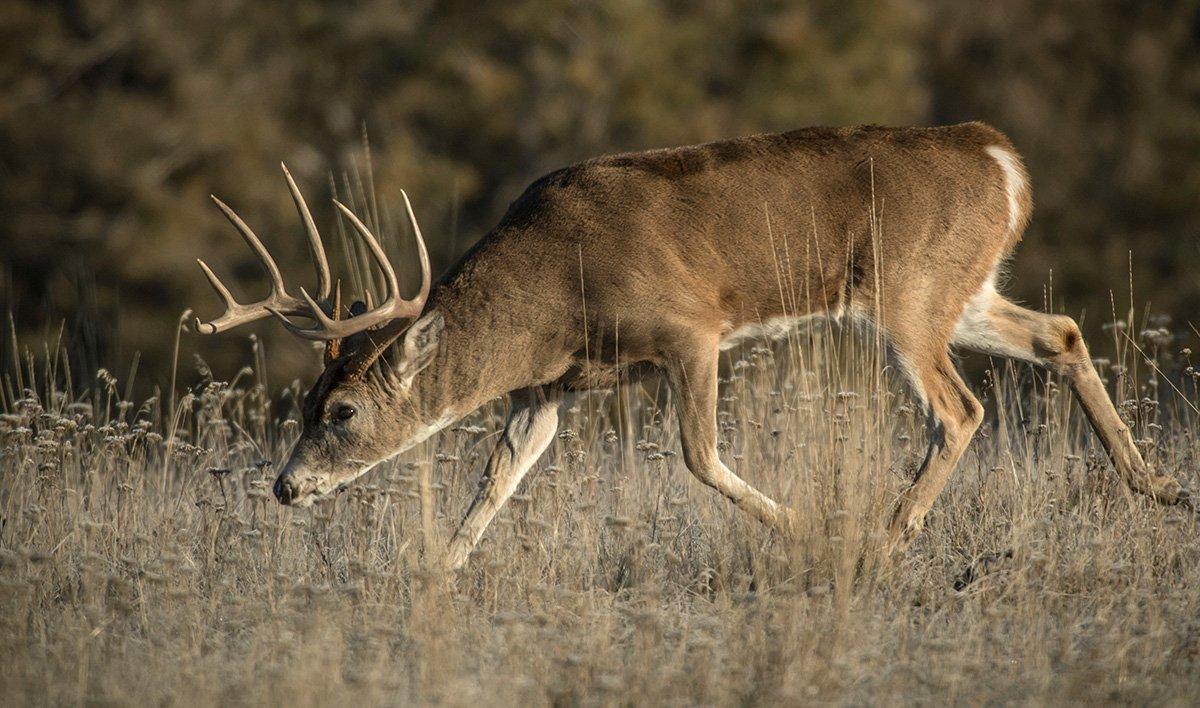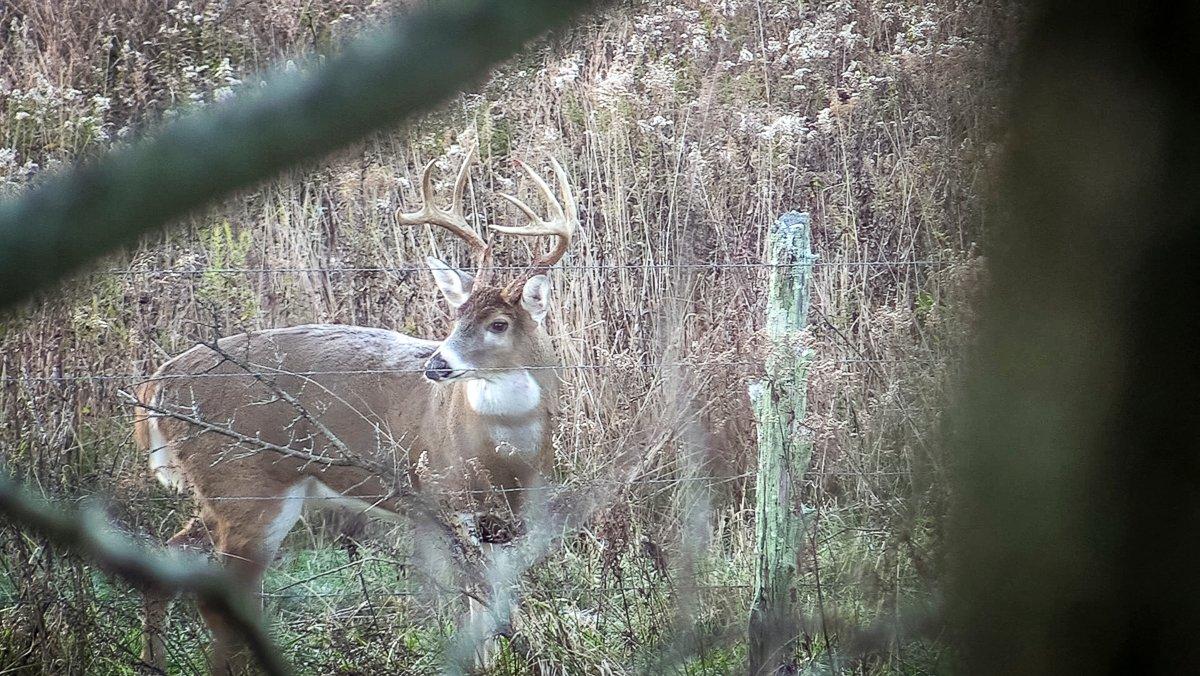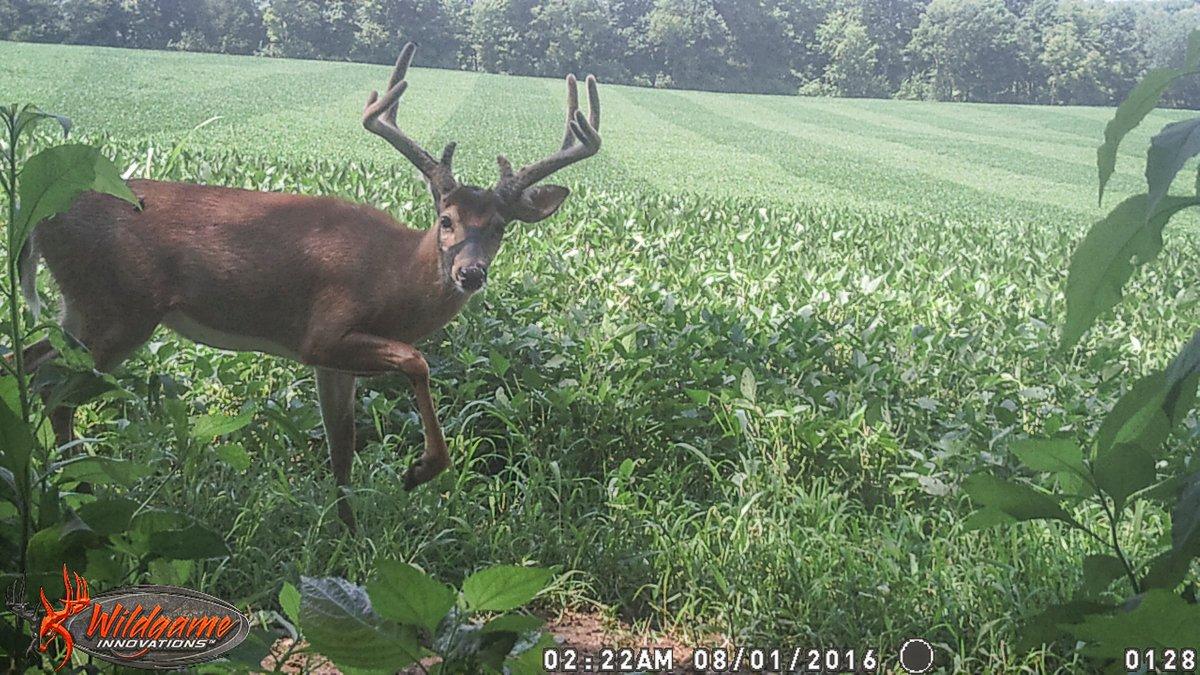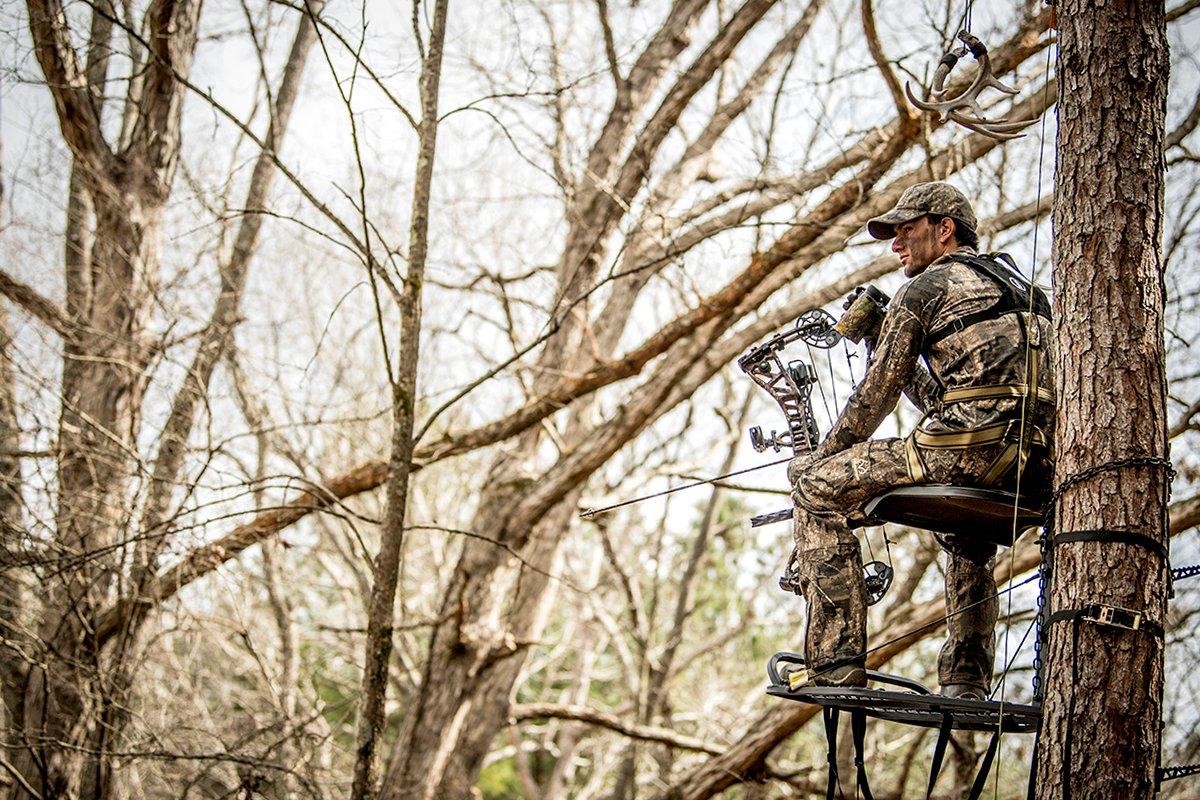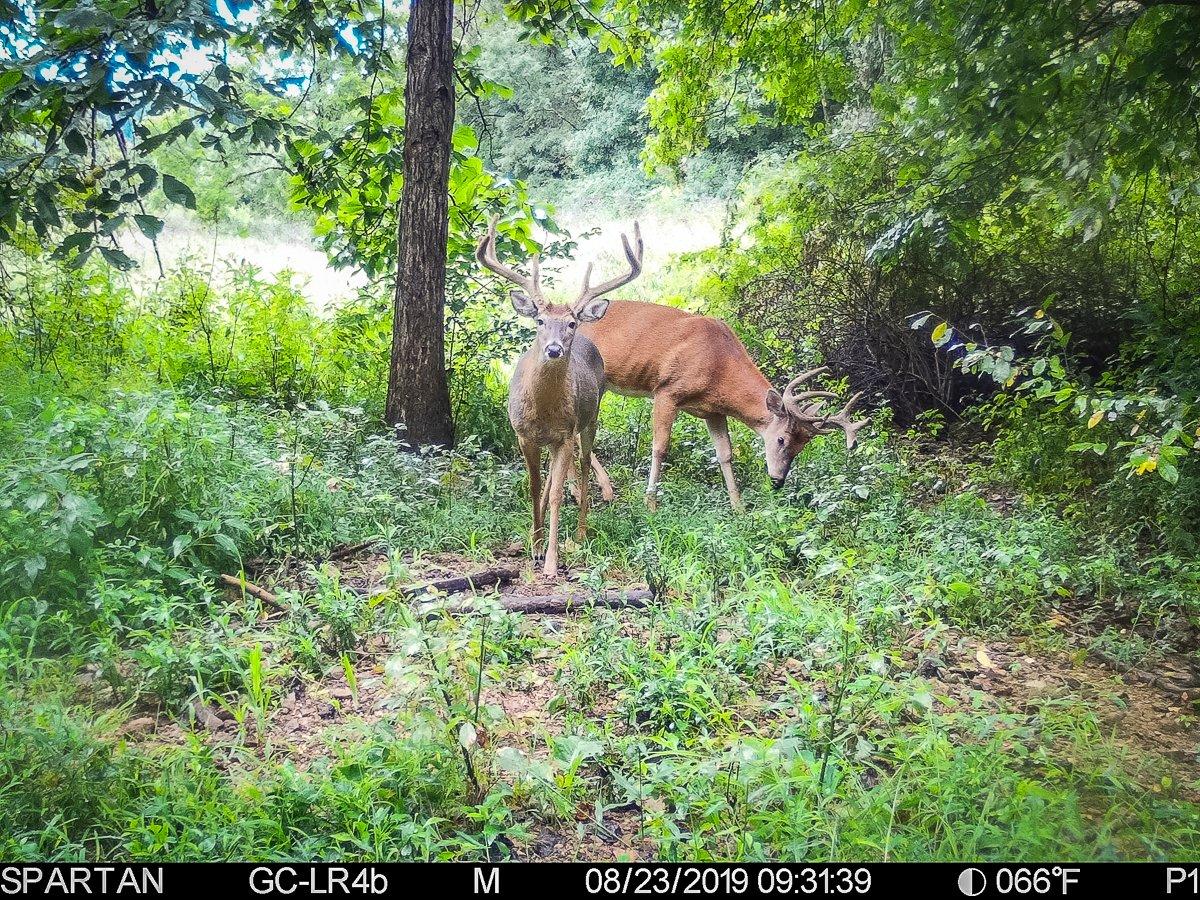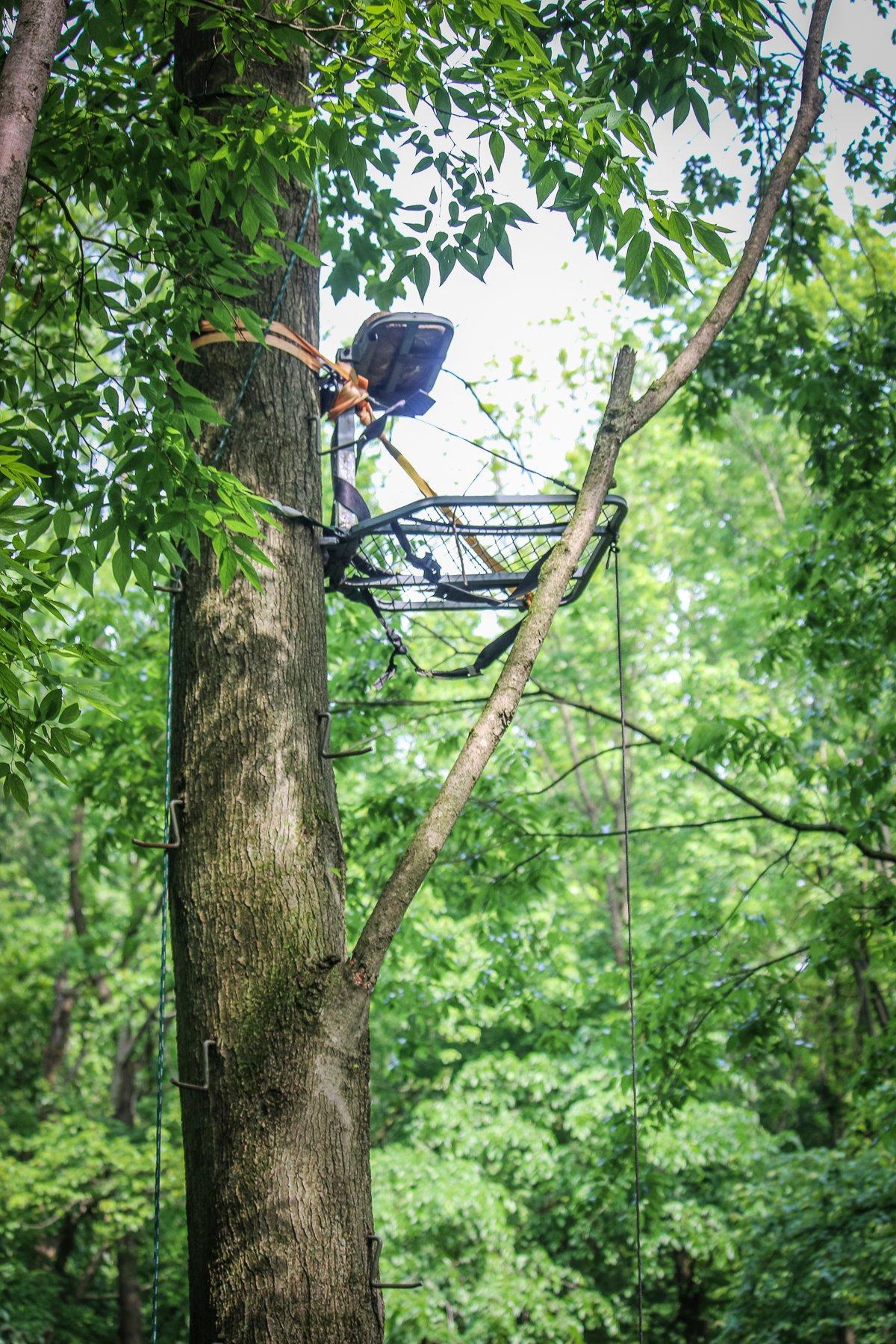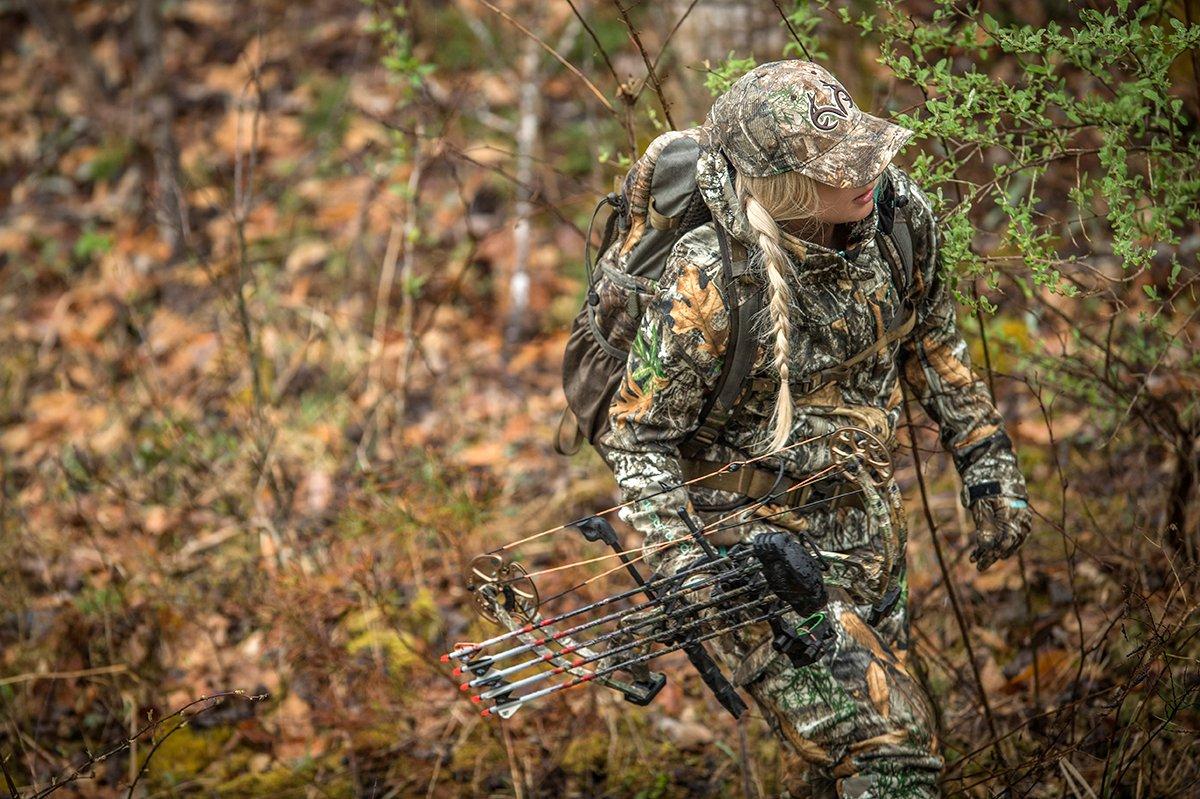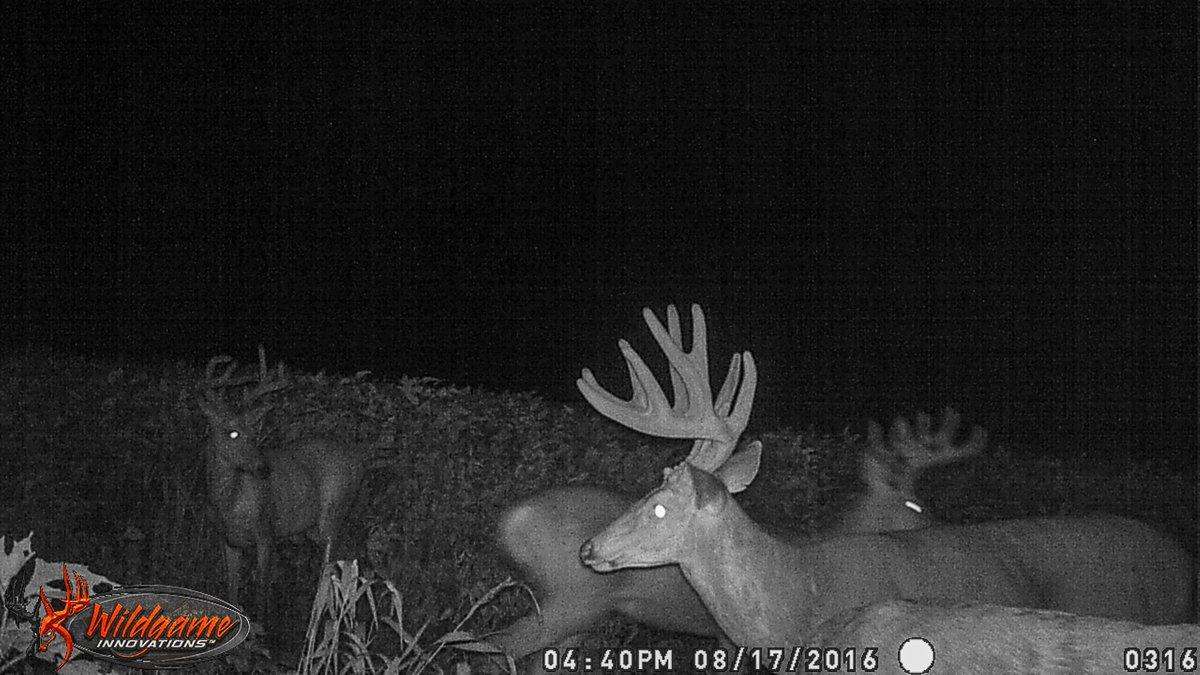You just might tag the buck of your dreams this season — but odds are, at least one of these obstacles will get in your way first
We deer hunters expect every new season to be the best one yet. That's a good attitude to have, because you'd be a salty curmudgeon if you didn't. But rarely does a season turn out exactly as we hope, especially if you've got a specific target buck in mind. What's the problem? It's usually one of these 30 reasons — many of which are preventable.
1. Crappy Equipment
You don't need the best gear to kill deer. In fact, a greater hunter using subpar stuff will almost always outperform a lesser hunter equipped with the best products. Still, good gear makes a difference. Just ask someone who's used a shaky pin sight, fogged-up scope, or inaccurate rifle barrel. Quality matters.
2. Weapon Proficiency
Those who aren't completely in tune with their bows and guns aren't ready for the field. It's serious pressure having a big-rack buck in front of you. Buck fever alone can cripple a man. Buck fever and poor shooting skills together create disaster.
3. Bad Advice
Everyone has an opinion, and everyone thinks theirs is right. Some are. Maybe even most. But it's important to take the things you read, see, and hear and then make an educated decision for yourself.
4. Terrible Ground
Some lands are terrible for deer hunting. They don't hold big deer, don't hold them long enough to hunt, or don't have good enough access for success. Find huntable ground that holds mature bucks.
(Don't Miss: Great DIY Deer Hunts)
5. Habitat Disturbance
A buck can be on a pattern, only to be disrupted by a habitat change. Mowed fields, logged timber, harvested crops, and many other landscape changes can alter the behavior of a deer. If possible, move in before these things occur.
6. Range Change
Whitetails don't stay in the same spot indefinitely, especially bucks. They tend to have a large home range, and they use different parts of it throughout the year. Waiting too long to start hunting a buck gives it time to shift to a different area. At best, you have re-learn the deer's habits. At worst, you lose access to hunting it.
7. High Densities
Too many deer means too many eyes. Trying to get drawn back on a big deer while 10 or 15 others are around is no simple task. Hunting high density deer populations is fun, but can be very difficult if you're focused on shooting one particular animal.
8. Misidentifying Racks
Some bucks look similar. It's very easy to mistake a young buck that looks like an older deer of the same rack structure. Study trail camera photos intensively to learn the minute differences of your target buck's antlers.
(Don't Miss: Lessons Learned from 15 Freaky 200-Inch Bucks)
9. No Planning
Hunting a target buck with no plan is like taking a road trip without a map. You're going somewhere, but who knows where you'll end up. Always have a plan, and backup plans, for your target bucks.
10. Insufficient Scouting
Never scout more than you need to. It can apply unnecessary pressure. But it's even worse to scout too little. Scout until you have the needed information, and then move in for the hunt.
11. Bad Access
If you can't reach a stand location without spooking your target, the stand location isn't good for any hunts. If you can reach the stand undetected but can't depart without spooking the target, it's good for only one hunt. Either way, you need to find a new spot.
12. Loud Feet
Walking loudly is one of the biggest mistakes hunters make. Walking with a human cadence is another. Avoid loud footfalls, and if noise must be made, try to sound like an animal and not a human.
13. Tinks and Clanks
Much of our hunting gear is crafted with metal and other loud materials. It's easy for these items to make contact and create unwanted sounds. Using felt strips to pad contact points and items that are handled and moved frequently is a good way to minimize noise.
(Don't Miss: 10 More Deer Hunting Myths Debunked)
14. Too Aggressive
Being too aggressive is a good way to pressure deer and blow a hunt. Repeatedly using overly aggressive tactics and maneuvers can result in burning out a stand or even an entire property. Know where that line of being too aggressive is located and do your best to stay away from it.
15. Too Passive
Being too passive can be equally devastating to your deer season. Not making a move when you should can prevent you from an encounter or shot opportunity you otherwise would get. Find a happy medium between being too passive and too aggressive.
16. Stand Selection
Poor stand selection can result in lost opportunities. From bad wind directions to being off travel routes, being in the wrong spot does nothing for your efforts. Of course, we can't predict the future, but we can do our homework and select stand locations we think will produce.
17. Stand Burnout
Hunting a stand a lot doesn't always lead to burnout, especially if great access and wind directions leave you undetected. However, it becomes a problem once deer repeatedly know you're there. Fix that by not overhunting an area with poor entry routes, exit routes, and wind directions.
(Don't Miss: From Buttons to Booner)
18. The Phone
Hunters commonly find themselves bored, especially when the action is slow. So they play on their phones and quit paying attention. That's all it takes for a buck to sneak by without you ever knowing, or not knowing until it's too late. Stay off the phone and keep your eyes peeled.
19. Hesitation
Hesitation kills your chances of shooting a deer. Waiting too long to act is one of the worst things you can do. Whether that's waiting too long to hunt a spot, switch stand locations, or take the shot, hesitation is a common mistake.
20. Poor Effort
Putting in poor effort can lead to a tag sandwich. It's a bummer, too, as laziness is easily avoided with a little will power and prudence. Do the work and see the positive results.
21. Tactical Mishaps
Hunting is much like a sport in that we pull from our playbook to use different approaches and tactics. Sometimes, we pick the wrong plays. It happens.
(Don't Miss: Why Deer Hunting on Halloween is Scary Good)
22. Wacky Winds
A sudden change in the wind direction, pesky swirling winds, or even forgotten thermal action can end a hunt in a hurry. Sometimes these things can be avoided or mitigated but often, they cannot.
23. Scent Control
A hunter will never be scent-free, but it is possible to minimize your scent. Taking the extra steps and precautions might give you the extra second or two of time you need to shoot before a buck knows you're there.
24. Buck Fever
A nasty little bugger, buck fever has ruined its fair share of shot opportunities. While experience shooting at live deer is the best way to combat this, try adding some pressure, like friendly wagers or competition with buddies, into your practice sessions.
25. Unrealistic Goals
Hunters who expect to shoot that buck they've seen on camera one time at 3 a.m. two years ago have a rough season ahead. Sure, you might just get that buck. But don't bank on it. Not unless it returns and becomes more regular.
(Don't Miss: Here's Where Pressured Bucks Spend the Most Time)
26. Deadly Diseases
CWD, EHD, BTV, and a host of other deer diseases can wreak havoc on a deer herd. While it's certainly unfortunate, it happens, and hunters must learn to adapt — not drown in their sorrow.
27. Other Hunters
Deer get hunted hard. There's a good chance another hunter will shoot that big deer you're after, especially if you're hunting on a small tract of land. It's important to remain hopeful, but sometimes, others reach the finish line first.
28. Big Surprises
Sometimes, you do everything right, but something big messes up a hunt at the last second. It might be a coyote busting out of the woods, or a trespasser on an ATV. These things are out of our control, but they save plenty of bucks.
29. Small Surprises
Other things can be subtler, such as days-old ground scent from another hunter that spooks a buck, or a new deadfall that causes him to take a different trail just before he gets to within range.
30. Poor Fate
While I'm a firm believer that we create much of our own luck, many things are out of our influence or control. No matter how hard you work, or how many of the right decisions you make, it just doesn't come together. And that, my friends, is fate. Sometimes fate isn't our friend. But sometimes, it can help you tag your target buck, and look back on the best deer season you've ever had.
(Don't Miss: What to Do When Your Buck Disappears)

